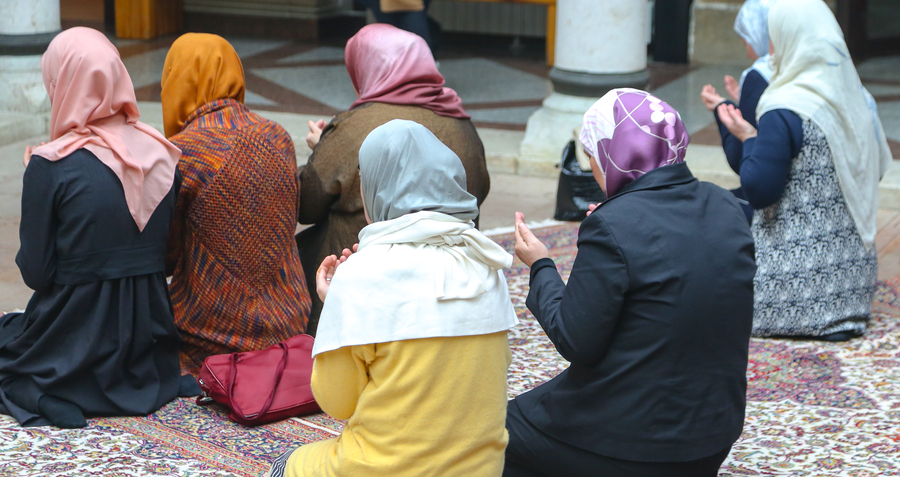How To Determine the Beginning and End of the Menstrual Cycle?
Hanafi Fiqh
Answered by Shaykh Abdul Rahim Reasat
Question
My question is about irregular discharge and determining the beginning and end of the menstrual cycle according to the Hanafi madhhab.
The Madhhab believes discoloration should be regarded as menstrual, mainly when occurring close to the habit.
In this respect, I have the following issues:
I have been prescribed some strong medication to deal with a chronic illness, which has messed up my habit; my period may skip a month or come twice in the same month. So no established pattern.
Irregular discharge has been regular for me since my period began. It is not seen every day all the time, but very regularly. This means yellow is expected on any given day at any time of the month, so I only start counting when it becomes darker or closer to brown or pink.
I’m also forced to count my periods as ten days later because from the time it becomes a different color, “real” bleeding starts 3, 5, or even eight days later.
My questions are:
What is the scope for considering discoloration as menstrual or purity?
When I use a kursuf, it returns yellow. What is the ruling of this specific yellow discharge, seeing as it comes from the same place the clear, pure one would come? Does it break wudu? What is the status of a prayer prayed in the following prayer time using the same kursuf, but only realizing later that it had become yellow?
In an answer on your site regarding the use of kursuf for keeping Wudu’ for a longer time, answered by Ustadha Shaista Maqbool, states that: “Also according to the Hanafi school, the discharge does not break wudu, according to the most relied upon opinion. Therefore, there is no need to insert a kursuf to prevent discharge.” She also says: “Discharge, white or clear, breaks wudu in the Shafi’i school. Women may insert the kursuf into the vagina to prevent discharge so they can keep their wudu for longer periods of time.” Can the Kursuf be used between prayer times to keep Wuduu’ according to the Hanafi Maddhab if a lady is experiencing irregular discharge?
Answer
In the Name of Allah, Most Compassionate and Most Merciful
Establishing a Menstrual Habit
Firstly, I’d like to point out that your menstrual habit, for the purposes of rulings relating to prayer and purity, is the number of days your last proper menstrual cycle ways and, roughly, where it was in the month.
A proper menstrual cycle is between 3 and 10 days, and it has to have at least 15 days of purity between it and the previous cycle. You can use this to determine your habit.
You can also consider your yellow discharge to be your normal discharge, and the same for the clear discharge you see.
Questions Regarding Discharge
As for your questions:
You should treat the yellow discharge as such and not as menstrual blood. The fact that it’s always been that color is enough to establish that it is a normal discharge.
The yellow discharge you see is pure and will not invalidate your wudu. If you used a kursuf and found it is yellow in the following prayer time, assume the validity of your prayer. Nothing which would break your wudu has occurred.
There is no need to use a kursuf to try to maintain your wudu, seeing as the discharge under discussion does not invalidate the wudu. That is the position of the school. Leave it at that; life is easier that way. [Birgivi, Dhukhr al Muta’ahhilin]
The Practice of the Religion is Ease Itself
The Messenger of Allah (Allah bless him and grant him peace) said, “The [practice of] the religion is ease itself.” (Bukhari) It seems like this issue has caused you a lot of distress. It might be best if you spoke to a reliable local scholar to ascertain your menstrual habit and move forward from there.
Your situation shouldn’t be too difficult to pray in. The irregular cycles caused by the medication can be managed quite easily once you know what the habit is and how to identify when and if you are having dysfunctional bleeding (istihada). You can keep the coloration of the discharge to identify the start and end of your cycle.
May Allah facilitate all matters for you.
[Shaykh] Abdul-Rahim Reasat
Checked and Approved by Shaykh Faraz Rabbani
Shaykh Abdul-Rahim Reasat began his studies in Arabic Grammar and Morphology in 2005. After graduating with a degree in English and History he moved to Damascus in 2007 where, for 18 months, he studied with many erudite scholars. In late 2008 he moved to Amman, Jordan, where he continued his studies for the next six years in Sacred Law (fiqh), legal theory (Usul al-fiqh), theology, hadith methodology, hadith commentary, and Logic. He was also given licenses of mastery in the science of Quranic recital and he was able to study an extensive curriculum of Quranic sciences, tafsir, Arabic grammar, and Arabic eloquence.
